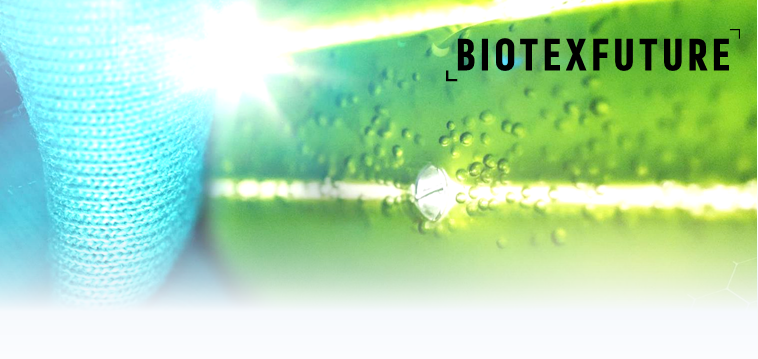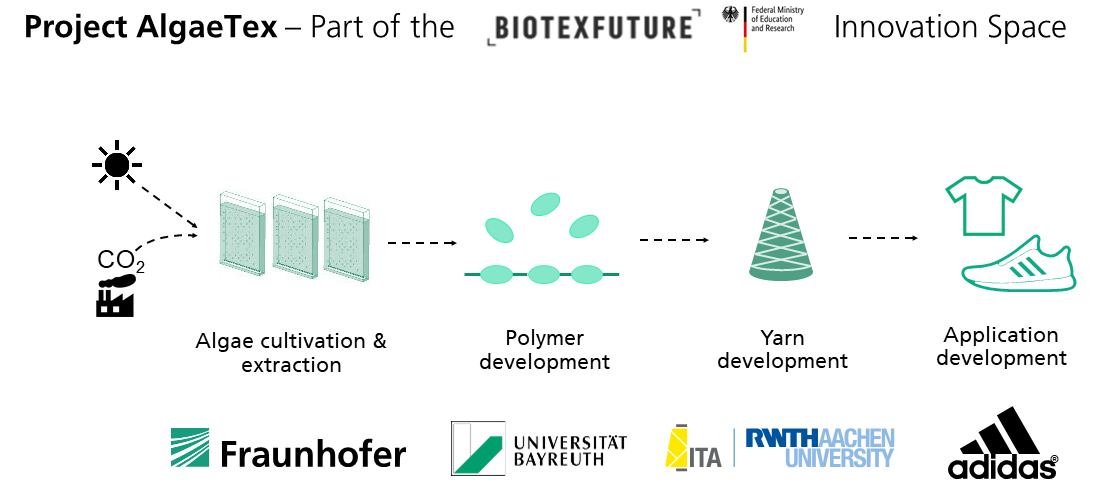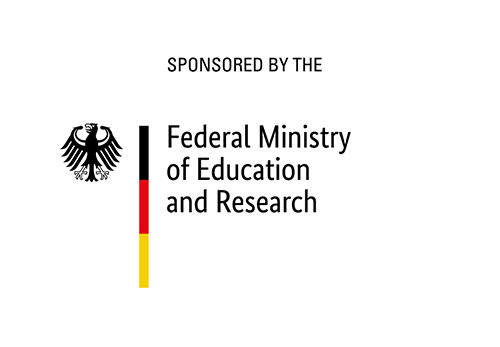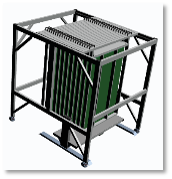With fossil-based resources becoming more scarce, the textile industry has an ever growing need to identify and develop alternative raw materials for manufacturing textiles fibers. In the AlgaeTex project, researchers are striving to manufacture a variety of polymers using algae-based fatty acids as the main constituent. Their goal here is to develop polyesters and polyamides suitable for melt spinning processes, so they can be widely used in the textile industry.
AlgaeTex – Spinning biobased polymer yarn from microalgae

Optimized algae cultivation
Previous projects focused on developing the multi-stage processes needed for accumulating a fatty acid content of just over 50 percent in algal cells; now, in AlgaeTex, Fraunhofer IGB is optimizing those processes [1]. Meanwhile, a pilot plant at Fraunhofer CBP has already conducted open-air production trials using both sunlight and artificial light. When compared to the space required for agricultural production, algae cultivation with artificial lighting is 500 times more effective in its use of space.
Energy efficiency gets a boost with a new, compact, modular photobioreactor
This improved use of space comes at a price: electricity consumption is high, with one kilogram of algal biomass requiring 70–100 kWh of energy. The IGB team needs to make the accumulation of high levels of fatty acids in the biomass as efficient as possible and to optimize the conversion of light energy within the algal biomass. To achieve this, they will carry out extensive testing with the institute’s newly constructed compact, modular stack photobioreactor. The bioreactor is equipped with unique features such as extensive LED lighting and connections between the individual chambers, which makes it possible to harness their entire combined capacity.
Reprocessing and polymer synthesis
At Fraunhofer CBP, the fatty acids are extracted and reprocessed to form biodiesel (fatty acid methyl ester, FAME), which is then passed on to the Macromolecular Chemistry II department at the University of Bayreuth for further processing. Using a green chemistry approach, the scientists at the university synthesize basic bifunctional monomers (such as diols and dicarboxylic acids) that can be polymerized to form polyamides and polyesters suitable for melt spinning. The process continues at the Institute of Textile Technology in RWTH Aachen University, where the polymers are extruded and tested for their suitability for melt spinning. Then, in conjunction with Adidas AG, the RWTH team assesses whether the materials can be processed to form a woven textile.

Outlook
As the project continues, the team hopes to process the algal yarn further to create high-quality textile demonstrators. In particular, they intend to investigate whether their multifilament yarns are suitable for application in textiles for the sport industry at Adidas AG. The innovation space BioTexFuture was established with the objective of driving the textile sector’s transformation from petroleum dependency to a biobased industry. As it helps the German textile industry take this major step toward sustainability, the AlgaeTex project is also supporting the sector’s future viability.
Literature
[1] Münkel R., Schmid-Staiger U., Werner A., Hirth T. (2013): Optimization of outdoor cultivation in flat panel airlift reactors for lipid production by Chlorella vulgaris. Biotechnology and Bioengineering 110, (11), 2882–2893.
Project information
Project title
AlgaeTex – Spinning biobased polymer yarn from microalgae
Project duration
November 2020 – November 2023
Project partners
- Fraunhofer IGB, Stuttgart
- University of Bayreuth, Chair of Macromolecular Chemistry II
- RWTH Aachen, Institute of Textile Technology
- Adidas AG, Herzogenaurach (Coordination)
Funding
We would like to thank the Federal Ministry of Education and Research (BMBF) for funding the “AlgaeTex” project, promotional reference 031B1058D.

 Fraunhofer Institute for Interfacial Engineering and Biotechnology IGB
Fraunhofer Institute for Interfacial Engineering and Biotechnology IGB